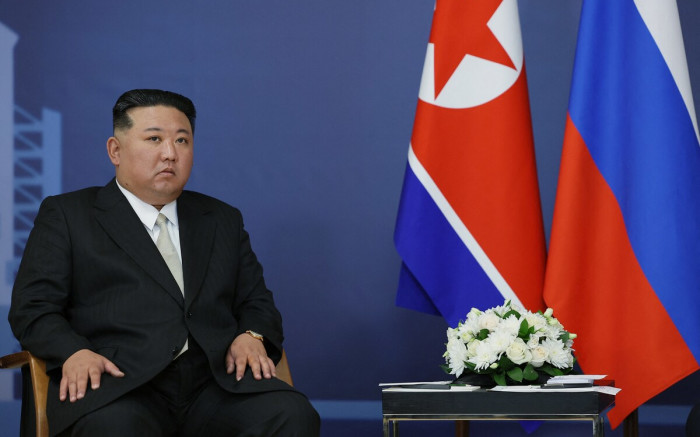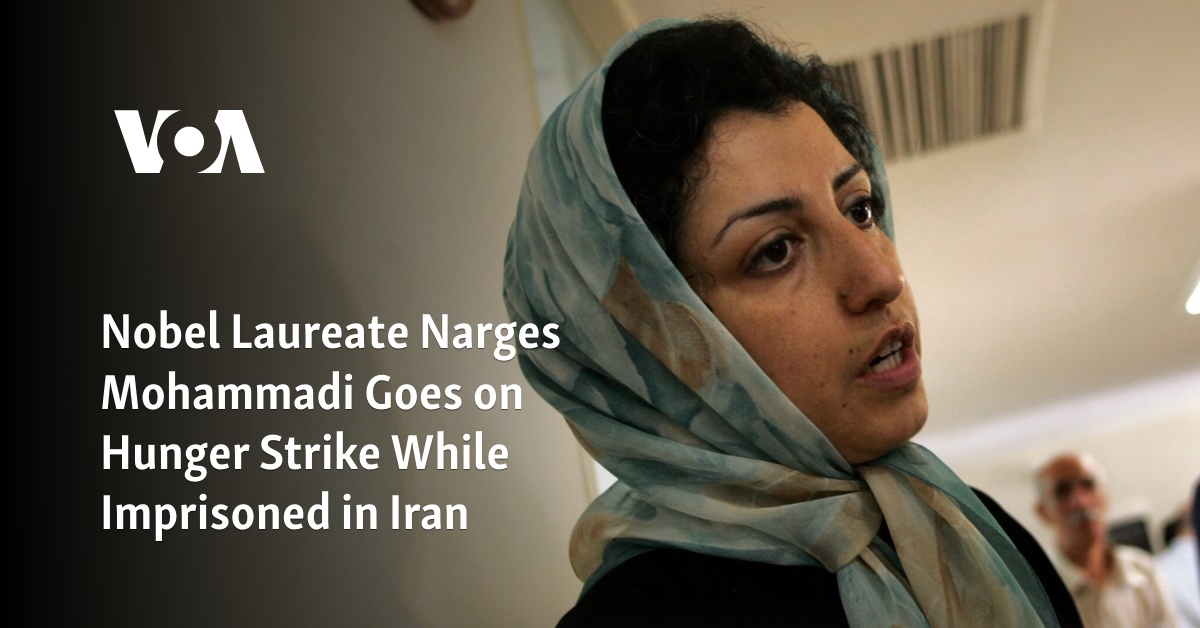
Like many others in the world, I am emotionally drained. I spend most of my waking hours reading the news, reading about tragedy after tragedy, and longing for a permanent end to the relentless war in Gaza. I am also physically exhausted. I spend my weekends marching, fueled by the desperate hope that if enough of us consistently take to the streets and speak out, our collective voice might push our leaders to finally call for a permanent ceasefire.
But beyond this physical and emotional exhaustion, I also feel a deep anger, a deep disappointment, at feminists in my country, in the UK and beyond, who seem to have absolutely no interest in the suffering of women in Gaza.
Every day I come across opinion pieces and social media posts from feminists who rightly condemn Hamas’ egregious treatment of Israeli women during its October 7 attack and its treatment of female hostages thereafter. These arguments and statements are undoubtedly valid and undoubtedly necessary. Such grave crimes against women and girls, against anyone, should never be ignored, excused or forgotten.
And yet these very people, these self-proclaimed feminists, remain eerily silent about Israel’s similarly egregious actions against Palestinian women.
As a result of Israel’s near-total siege and indiscriminate bombing of the Gaza Strip, tens of thousands of Palestinian women and children have already been killed, maimed and disappeared beneath the rubble. Many more have been displaced and are forced to endure the harsh winter without adequate shelter or supplies. The near-total collapse of the health system and lack of food and clean water mean some 45,000 pregnant women and 68,000 nursing mothers in Gaza are at risk of anemia, bleeding and death. Meanwhile, in the occupied West Bank, hundreds of Palestinian women and children remain imprisoned, many without trial, trying to survive in appalling conditions.
This catastrophe is playing out in the open, but the majority of feminists in Britain and the West more generally seem to have nothing to say about it.
Why are the stories of Palestinian women ignored? Why do the struggles of Palestinian women and children seemingly not deserve the same level of concern? Increasingly, I believe this is not just a lack of attention, but willful blindness – the result of a moral compass that can be irreparably broken.
Over the last three months I have thought deeply about these questions. I have delved into numerous “feminist” texts by authors I once respected to understand how they interpret feminism and why it does not seem to be inclusive of Palestinian women.
Gradually, I realized that their brand of feminism perceives Palestinian women as oppressed primarily not by Israel or other outside forces, but by Palestinian men. For them, Palestinian women have little to no agency and are constant victims of a society with gender-based violence embedded at its very core. Furthermore, in their eyes, Palestinian men are synonymous with deeply patriarchal, religious and socially conservative groups such as Hamas, which are known to abuse and oppress women. Therefore, these “feminists” believe Israel’s claims that its attack on Gaza will help “liberate” Palestinian women from the clutches of Hamas, ignoring the actual, grave harm the war has caused them.
This approach is part of a troubling historical pattern – a form of feminism steeped in colonial and imperial prejudices and prejudices. “Feminists” of this kind supported the US invasion of Afghanistan because it was supposedly aimed at “liberating Afghan women,” but would never dream of advocating for the violent “liberation,” for example, of Jewish women living in deeply patriarchal and religious communities live in Israel.
In this form of feminism, empathy and outrage are aligned not with universal feminist principles and the desire to give all women agency and power, but with personal identities and political affiliations. This results in a hierarchy of concern in which some feminist struggles – and particularly those against Muslim, brown men – are prioritized over others, allowing the rhetoric of women’s liberation to further the goals of the powerful, often even against them the costs of the oppressed.
In this context, the silence of Western feminists on the need for a ceasefire in Gaza represents not only a moral but also a political misstep. It perpetuates a type of feminism that is intertwined with colonial and imperial power structures that have historically existed under the pretext of have caused damage to protection.
This silence is emblematic of a modern “colonial feminism” in which the rhetoric of “women’s liberation” masks deeper acts of violence. It justifies invasions and occupations under the guise of aid, portrays Palestinian women as mere victims in need of rescue, while denying their right to resist. Ultimately, Western feminists’ selective empathy serves to reinforce power structures that perpetuate the cycle of violence.
Meanwhile, some feminists excuse their refusal to call for a ceasefire by pointing to Palestinian society’s complex stance on LGBT rights. They say Hamas imprisons LGBT people or does worse to them, so the war should continue until the group is completely eliminated.
However, this justification overlooks a crucial element that is often touted in feminist discourse: intersectionality. While the challenges facing Gaza’s LGBT community under Hamas rule are indeed significant, using it as an excuse not to call for an immediate ceasefire sidesteps the larger humanitarian crisis. Such a selective approach not only ignores the urgent needs of thousands of women and children who endure violence and oppression every day, but also belies a worrying trend of selective empathy. Furthermore, it ignores the fact that Israel’s war also kills and maims LGBT Palestinians.
Denial of support for a ceasefire based on Palestinian society and Hamas’s perceived hostility toward the LGBT community undermines the core tenet of feminist solidarity – the commitment to protect and promote all women and marginalized communities, regardless of their socio-political situation. By refusing support for a ceasefire on these grounds, these feminists inadvertently place ideological purity above the urgent need to prevent further loss of life and suffering. True feminist activism should overcome geopolitical prejudices and uphold the rights and dignity of all women and vulnerable groups, regardless of their origins or the complexity of their social context.
Aside from those who cite the oppression of women by Hamas and the broader Palestinian society, as well as apparent prejudice against the LGBT community, as reasons not to support calls for an immediate ceasefire, there are also feminists who remain silent on the issue , because they want to remain “neutral” on a “complex” topic. Perhaps this attitude confuses and angers me more than any other.
There can be no neutrality in the face of this overwhelming terror.
Today, Palestinian women are experiencing horrors that fundamentally question the core values of feminism. Mothers bury their children with their bare hands; Families mourn their lost homes and destroyed lives, hungry and under a rain of bombs.
In these circumstances, silence is not a neutral stance. Today’s silence is a passive endorsement of the ongoing tragedy. How many more lives must be destroyed before these cautious and politically “neutral” feminists find the courage to call for a ceasefire? The rising death toll is not just a tally; it represents individual lives, stolen futures, and a direct challenge to the principles underlying feminism itself.
What remains unsaid today is just as important and effective as what is said.
Many prominent “feminist” voices, always vocal about their views on gender, sex and society, are still conspicuously silent on the struggles of Palestinian women. While their platforms have the power to bring critical issues to light, they also have the subtle power to marginalize others. Too often we see the concerns of non-Western women marginalized by the reluctance of these high-profile activists to write and speak about them.
This selective silence calls into question the universality of feminist solidarity. Particularly when it comes from prominent feminists that many others look up to, silence becomes a form of complicity. Do you think your silence on the tragedy of Palestinian women has gone unnoticed? I hate to break it to you, but your silence is deafeningly loud and has robbed your work of all credibility in the eyes of many.
If you are one of the “feminists” who for some reason do not speak out about the suffering of Palestinian women or support calls for an immediate ceasefire in Gaza, I have a very simple request for you. Check out the photos from Gaza. Maybe you’ve avoided them and dismissed them as mere propaganda – but leave your prejudices and clever excuses behind for a second and look at them. Look at the pictures of mothers holding the lifeless, bloody bodies of their children. Look at the images of confused toddlers, often missing limbs and flesh, lying alone on hospital floors. Look at the images of dead-eyed young women trying to collect fragments of their lives and murdered families in the rubble of their destroyed homes. Look at these pictures, really look at them, and then explain to me why you think “it’s not right to call for a ceasefire now.” And after really seeing these pictures, you still want to remain “neutral,” remain silent, or talk about “Islamist oppression” and “LGBT intolerance.” Don’t call yourself a feminist. Because you aren’t one.
The views expressed in this article are the author’s own and do not necessarily reflect the editorial stance of Al Jazeera.






Recent Comments